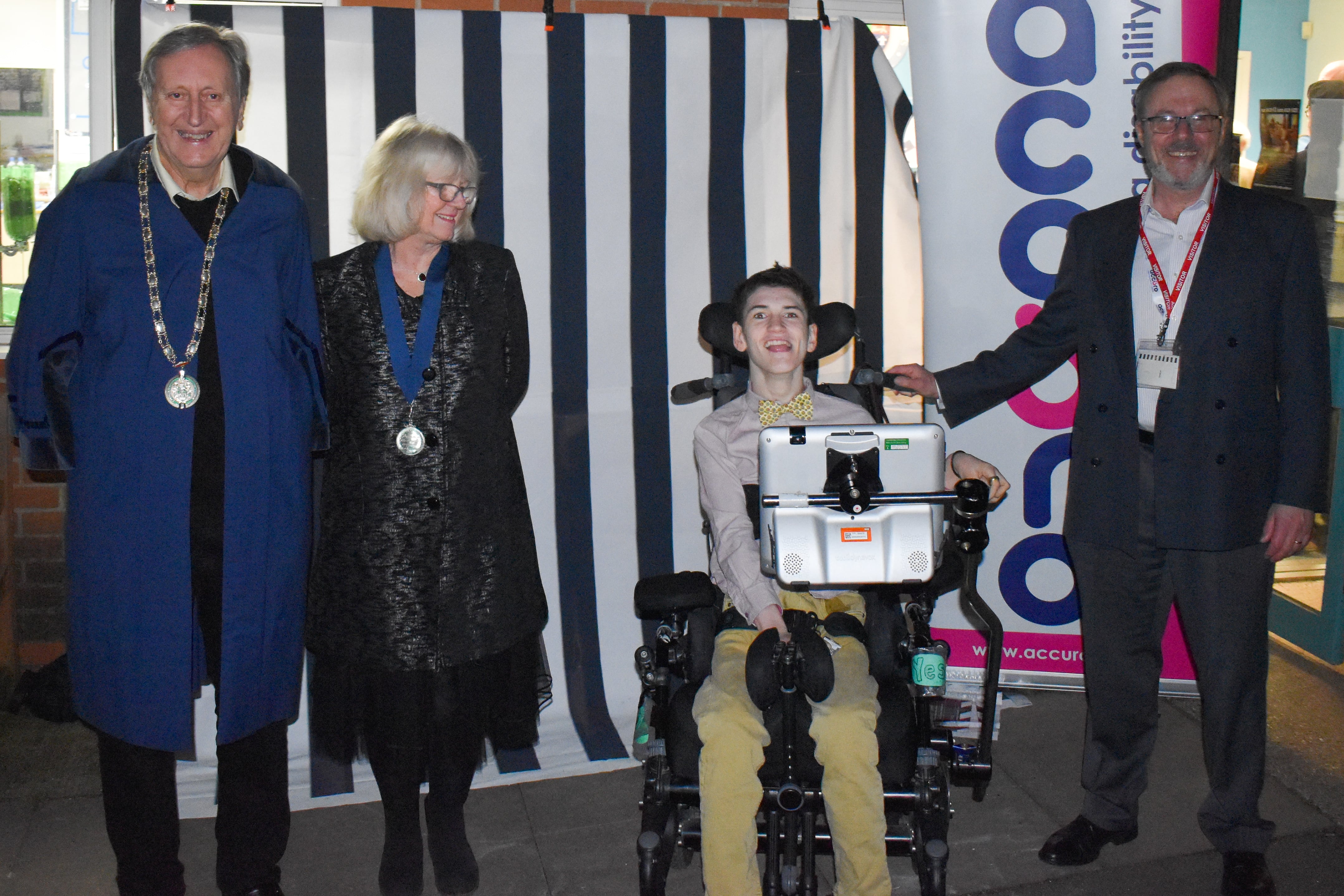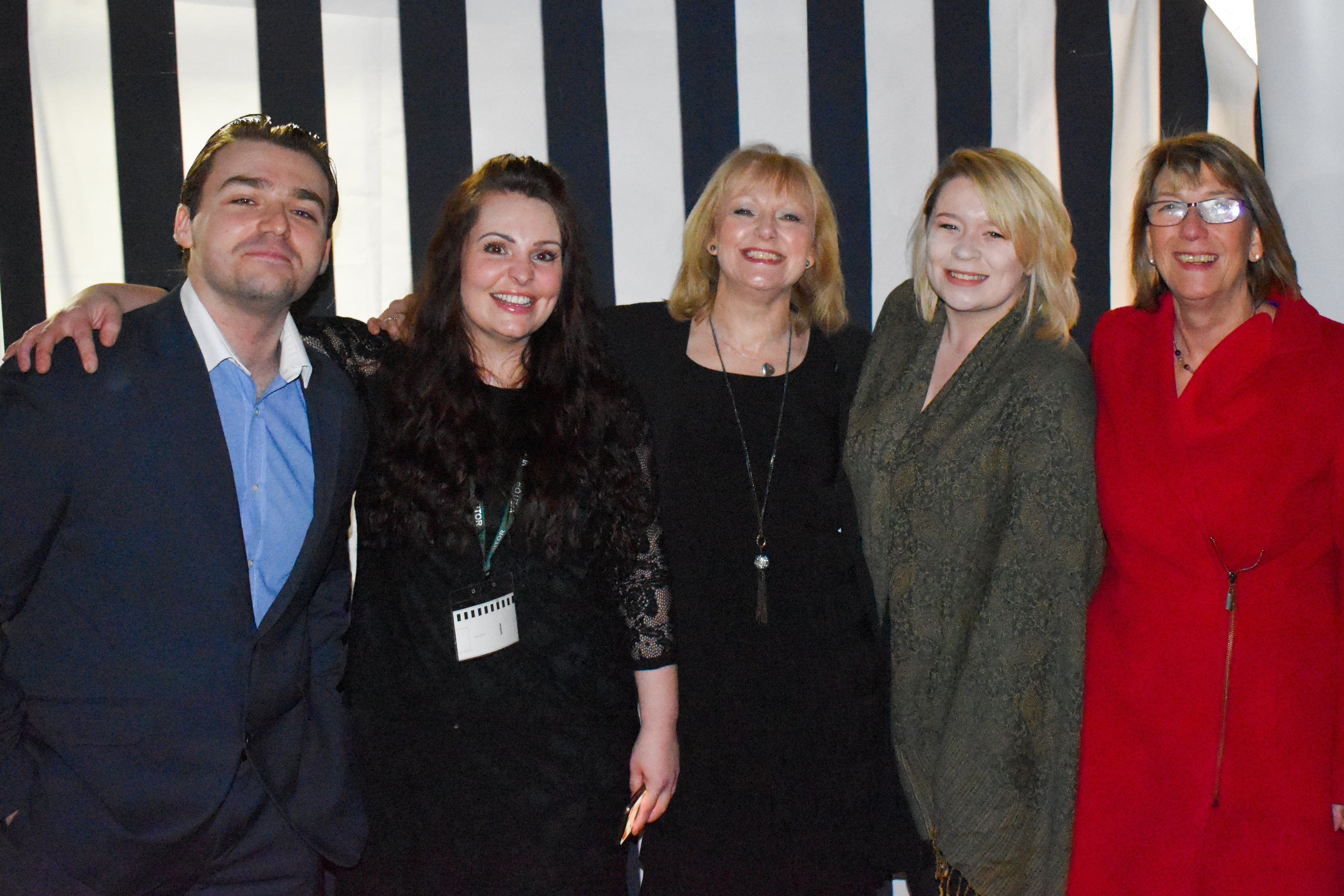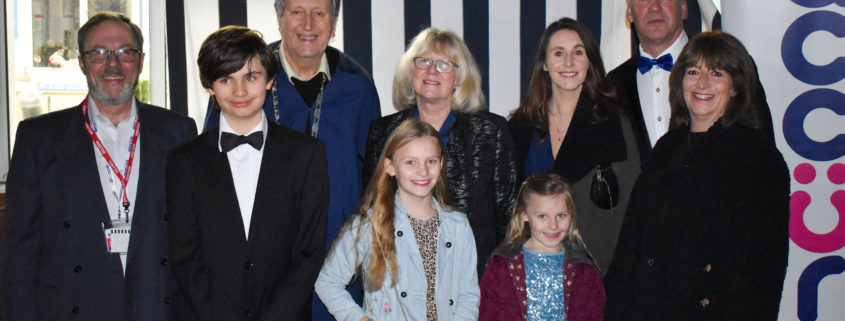How the performing arts helps people with disabilities
On Friday 1st March, Accuro’s Saturday Play Club premiered their short film The Windy Dragon at Dame Bradbury’s School in Saffron Walden.
The Windy Dragon, the children’s very own creation, told a tale of how a brave young girl chases away an evil, smelly dragon in order to rescue a friendly and trapped dragon. This short film was produced over the course of 6 weeks in collaboration with Mousetrap Theatre Project, a charity that exists to open the doors of theatre for young people.
The Saturday Play Club were welcomed by a red carpet, snapping paparazzi and an audience of over 80 guests. The Deputy Mayor of Saffron Walden, Arthur Coote and his wife Elaine Coote were among the audience and said:
“We want to create and sustain a community that is inclusive and allows people with disabilities to thrive and so we welcome initiatives like The Windy Dragon. It is very refreshing to witness how the Saturday Play Club have pulled together such a charming story and shared it with their community.”
Accuro caught up with Rachel Black and Gemma Bell from Mousetrap Theatre Projects to understand how the performing arts can be beneficial to people with disabilities.
How do feel The Windy Dragon project has impacted the children at Saturday Play Club?
They generated so many ideas for their story and it was wonderful to see their confidence grow as ideas were taken on and used in the final production. The participants worked really well as a group, especially during warm up games, and were very supportive of one another and accepting of everyone’s suggestions. The majority were very patient during the filming process, despite being outside on quite a cold day, and were so excited about taking centre stage. Filming their individual scenes was especially lovely as they really took their parts seriously and became the characters they had created.

How do you feel theatre and the performing arts can be of benefit to people with disabilities?
There are so many vital transferable skills in drama. The building of confidence is particularly crucial, drama lends a hand in this by gently building them up step by step. A session that starts with a game soon leads on to an acting exercise and then devising a task, where they are given the opportunity to show back their own ideas in a safe space. Games build up the feeling of camaraderie but also can be tailored to challenge. What may have seemed an impossible task is approached from a playful angle that is broken down into manageable chunks. The repetitiveness of rehearsal means they have a chance to really practice what it is they want to show back and ensure they have the time to get across what they want to show. Team activities where they are having to listen to one another and respect everyone’s ideas are very useful for developing social and communication skills. The individual exercises also encourage the young people to create material independently, as well as in a group. Theatre is a place in which the world is reflected on stage and everyone should have an opportunity to see themselves reflected on it. Ensuring everyone, from all backgrounds, have access to it is essential for this to happen. The more workshops there are with disabled participants, the more chance we have of increasing visibility for disabled actors in mainstream theatre.

What has been your fondest memory of working with the Saturday Play Club?
There are far too many to choose from! I really loved the creating workshops at the beginning where we started with a blank page and slowly developed a well-rounded story. But then I equally enjoyed the filming days and loved to see how playful they were when put in front of a camera. My ultimate favourite memory is seeing OS lead a game using his eye gazer. The rest of the group loved seeing him in this position of power and were so enthusiastic and supportive. It made me very proud of them all.

How can the children and their families stay involved with theatre?
Social media is a good way to stay in touch with what’s going on. Many theatres have young company projects, inside and outside of term time, which may be suitable for certain participants. I would encourage parents to sign up to the mailing list of their local theatre and see what activities they have on, especially over summer. Look in advance at what shows may be coming to the theatre so you can book early and ensure your visit is as smooth as possible. Keep an eye out for relaxed performances which are designed to provide an opportunity for people with disabilities to have a more relaxed environment to enjoy a show. This may include adjustments to sound, lighting, chill out zones within the theatre.
To find out more about Mousetrap Theatre Projects visit: www.mousetrap.org.uk. You can also email relaxed@mousetrap.org.uk to receive details and be added to their relaxed performances mailing list.
Visit Graeae Theatre Company, one of the first companies in Britain specifically working with disabled theatre practitioners.
The Windy Dragon is now out on DVD and available for sale at £5 and £2.50 for any subsequent copies.
Please contact the Accuro Office on fundraising@accuro.org.uk or 01279 870297 to order your copy





